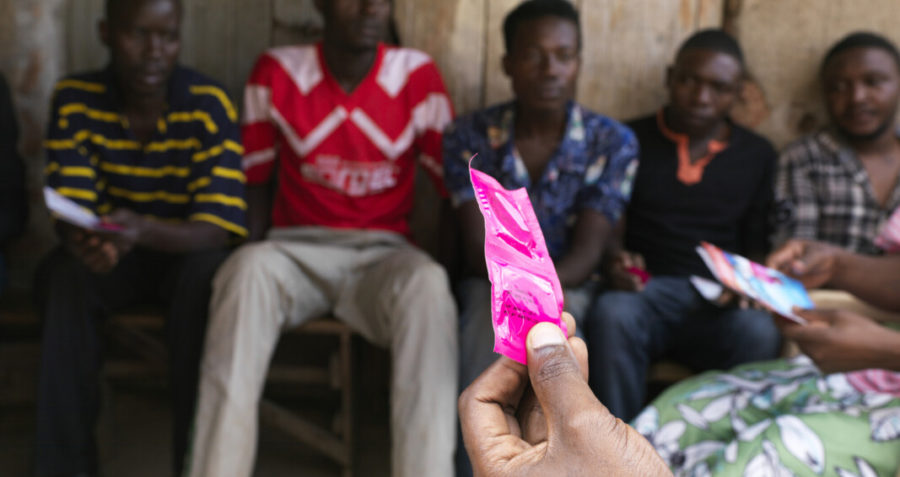Peer-led, youth-friendly HIV and SRHR health facility services
 © Frontline AIDS/Peter Caton/2015
© Frontline AIDS/Peter Caton/2015
Key information
- Organisation: Alive Medical Services
- Country: Uganda
- Region: Eastern and southern Africa
- Stage of innovation: Stage 3: Pilot
- Start date: Feb 2020
- End date: Jun 2020
- Type of innovation: Services delivery innovation: new or different way of providing a service
- Budget: US$62,260 for 5 months
- Funded by: SIDA through the Swedish Embassy in Kampala, managed by Frontline AIDS
Summary of intervention
Adolescents and young people face many sexual and reproductive health (SRH) risks, including HIV, STIs, gender-based violence, unwanted pregnancy and unsafe abortion. That’s why, every week, 360 adolescent girls and young women in Uganda contract HIV and 1 in 4 will experience pregnancy by the time they are 19.
To address these challenges, Alice Media Services has designed a peer-led intervention to improve SRHR and HIV services for adolescents and young people (ages 10-24). Adolescents and young people were trained on SRHR ‘self-care’. Topics included health promotion, health awareness, HIV treatment and prevention (PreP), SRHR (pregnancy testing, HIV self-testing, STI self-testing, oral and self-injectable contraceptives), advocacy, and understanding rights and responsibilities.
Different dialogues and policy meetings were held to engage various community groups and actors. This built broad support and understanding of the importance of comprehensive sexuality education for young people, and the need to ensure young people can access SRHR information and services without fear.
Health workers were trained on how to provide better services for adolescents and young people. Peers were trained to administer Ready to Care scorecards, which they used to assess adolescent and youth friendly services and put strategies in place to improve them.
next steps
- There are plans to adapt the Ready to Care scorecard, which was developed by Frontline AIDS and partners in the READY movement, to identify what is not working well and to put measures in place to address this.
- A quality review will assess whether adolescent and youth-friendly standards are being met and whether young people living with HIV are being supported to be positive about their futures and live healthy lives, and are being treated with dignity and respect.
- The scheme’s success is such that government officials in all three pilot districts have suggested that the initiative should be extended to in-education adolescents and young people.

